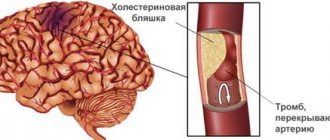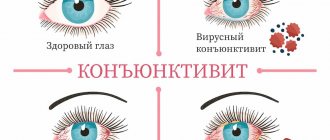Types of amnesia
There are two forms of the disease - retrograde (the patient does not remember events that occurred before the disease) and anterograde (the patient does not remember events that occurred after the onset of the disease).
Retrograde amnesia
As a rule, it does not affect events that happened long ago in the past, i.e. the most common cases of memory loss are about the last hours or weeks, less often - months. A sign of recovery is usually a decrease in the period of lost memory, but memory of the time immediately preceding the onset of the disease returns extremely rarely.
Anterograde amnesia
It is characterized by an unlimited period of lost memory, the duration of which is closely related to the duration of post-traumatic disorder of conscious activity. If anterograde memory loss develops as a consequence of traumatic brain injury, then the period of lost memory will depend on its severity.
There are other forms of amnesia, usually classified by developmental reasons, for example, a defensive form of the disease, displacing traumatic events from memory, or post-hypnotic - loss of the ability to reproduce events experienced in a state of hypnotic trance.
Researchers also identify spontaneous memory loss (the causes of which are probably simply not identified) and Korsakoff's syndrome (the inability to record current events), which is formed due to a lack of vitamin B1.
Regardless of the form of the disease, upon recovery, the ability to learn new skills and new information is the last to return, memory returns strictly chronologically (starting with the most distant memories), and the events immediately preceding the onset of the disease often are not restored.
Causes
Among the most common causes of amnesia are primarily traumatic brain injuries, emotional shock, tumors and strokes. However, the disease can also be triggered by a number of other diseases, for example, epilepsy, mental illness, degenerative brain diseases, metabolic encephalopathy, intoxication and herpetic encephalitis.
One example of psychogenic amnesia, for example, is dissociative fugue, which develops as a result of moving to a new place of residence or a complete change of environment. The patient may be completely unable to remember his past for months or even years, and he may suddenly remember and then forget certain events.
The reason for the development of another type of disease - dissociated - is a temporary loss of memory about traumatic events (loss of loved ones, severe stress, shock), but the memory of other events and skills remains in perfect order. It is interesting that with dissociated amnesia, the memory function is impaired only in the waking state, while in an altered state of consciousness (sleep, trance, hypnosis), the patient can restore all events.
Among the causes contributing to the development of Korsakoff's syndrome, alcoholism and unhealthy diet dominate. From the point of view of the anatomy of the brain, any dysfunction of its key parts can, depending on the severity of the injury, provoke the development of amnesia.
General description of the syndrome
Despite the huge number of different studies and publications, the process of memorizing and reproducing information is one of the most poorly studied, by the way, which is why the treatment of mnestic syndrome sometimes comes down to supportive and symptomatic therapy.
There are several memory processes:
- Memorization or fixation. This is the ability to form new neural connections, which ensure retention of a certain image in memory. The duration of memory retention is influenced by several factors: the degree of interest, content, well-being and emotional state at the time of receiving information.
- Retention (preservation). This is a kind of “processing” of information, during which everything unnecessary (from the point of view of a particular person) is “discarded” and only its essence remains.
- Playback. This is the process of “retrieving” images from memory. It can be involuntary, for example, some music or smell is associated with a certain event, and voluntary, when a person remembers what is necessary at that particular moment.
- Recognition is the subconscious comparison of a new image with something previously seen or heard.
- Forgetting. This is a completely physiological state when events that are uninteresting for an individual are gradually “erased”.
In patients with fixation amnesia, it is the process of memorizing new information that is impaired, but retention, reproduction and recognition are partially preserved. They do not lose previously acquired professional skills, subconscious reactions, behavior and communication with other people are preserved.
Symptoms
Often, amnesia is accompanied by other disorders of the nervous system and cognitive function of the brain, for example, pronounced thought disorders, slurred speech, inability to control attention, anxiety or depression.
Anterograde amnesia
Patients with anterograde amnesia exhibit completely normal behavior upon first meeting, but memory problems are easily identified if recent events are mentioned in conversation.
Retrograde amnesia
People suffering from retrograde amnesia have excellent memory of recent events, but have difficulty remembering events that happened a week or month ago. This form of the disease may not affect events of the distant past, so it is necessary to analyze their memories step by step. The main difficulty in identifying retrograde amnesia is the tendency in many patients to fill in memory gaps with false memories.
Korsakoff's syndrome
The presence of symptoms of Korsakoff's syndrome is indicated by the patient's disorientation in time and space, impaired attention and false memory (the patient reports fictitious events). The most resistant to forgetting information is the memory of self-identification (first name, last name, date and place of birth).
Amnesia, in which the patient does not remember distant events of his past and personal identifying data, is most likely of a psychogenic nature, i.e. caused by serious mental disorders.
Amnesia
Encephalitis
2432 04 August
IMPORTANT!
The information in this section cannot be used for self-diagnosis and self-treatment.
In case of pain or other exacerbation of the disease, diagnostic tests should be prescribed only by the attending physician. To make a diagnosis and properly prescribe treatment, you should contact your doctor. Amnesia: causes, symptoms, diagnosis and treatment methods.
Definition
Amnesia is a complete loss of memory for events of certain periods of time. In the process of memorization, the human brain first receives and perceives new information, then processes it, forms associations, accumulates and stores information, and reproduces it at the right time. Memory can be short-term (working), which retains information necessary to achieve the goal of the current action, and long-term. With amnesia, the brain loses the ability to retain information about events or knowledge and recreate accumulated material.
Causes of amnesia
In older patients, memory impairment is part of aging and is caused by both natural degenerative processes and diseases such as stroke or Alzheimer's disease. In young people, the most common causes of memory loss are trauma, intoxication or mental disorders.
Amnesia can be caused by infections (encephalitis, purulent meningitis), psychological trauma (death of a loved one, terrorist attack, war), excessive emotional stress, overwork, stress, and frequent migraines.
Diseases such as epilepsy, schizophrenia, dementia, and tumor processes in the brain can cause memory loss.
Classification of the disease
There are limited, fixating and progressive amnesia.
Limited amnesia is characterized by memory loss limited to a certain period of time. This type of memory loss is usually associated with periods of impaired consciousness:
- Congrade amnesia - loss of memory during the period of impaired consciousness can be complete or partial;
- retrograde amnesia (from Latin retro
- back,
gradi
- move forward, walk, i.e. moving backwards) - a person loses memory during the period preceding the disturbance of consciousness. For example, with a traumatic brain injury with loss of consciousness, a person almost always does not remember events that occurred in the period from several minutes to several days before the injury; - anterograde (moving forward) - amnesia covers the period after the restoration of consciousness. For example, a person got into an accident and suffered a traumatic brain injury with loss of consciousness, after which he was involved in registering the accident with the traffic police, and subsequently does not remember anything about this period of time;
- retroanterograde - a combination of retrograde and anterograde amnesia.
Sometimes limited amnesia does not occur immediately after a period of impaired consciousness, but after some time - this is called delayed or retarded amnesia.
Fixation amnesia is characterized by the loss of the ability to remember events - in other words, information from short-term, that is, working memory, cannot be transferred to long-term memory. A person is able to operate with information located in his working memory for several tens of seconds, but subsequently forgets everything that happened to him.
Progressive amnesia is a complete loss of memory, moving from the recent to the past, from the general to the specific, from less firmly fixed to more firmly fixed, that is, it moves according to Ribot’s law. Ribot's law is also called the law of regression, or the reverse development of memory - first, recent memories are erased from memory, then the disorder spreads to mental activity, and later takes over feelings and habits. This process ends with the disintegration of the most persistent memory - instinctive. Patients with progressive amnesia cannot correctly answer how old they are and usually give a younger age, reflecting that period of life that they still remember, forget where and with whom they live. They lose memories of where they worked, whether they were married, or whether they had children. The patient may interpret what is happening around him as events of the distant past, and may consider his spouse or children to be his parents, sisters or brothers.
Symptoms of amnesia
In addition to the main symptom (memory loss), amnesia is characterized by disorientation, confusion, and difficulties in communication. It becomes difficult for the patient to perform mental work, as he is unable to assimilate and reproduce new information and use past experience. In addition, the patient may form false memories (confabulations) to replace lost ones.
Patients with fixation anesthesia sometimes cannot name not only the date and day of the week, but also the time of year, and do not orient themselves in the surrounding environment even in their home. It is typical for them to replace memory gaps for present events with memories of real events that occurred in the past (pseudo-reminiscence).
Diagnosis of amnesia
The diagnostic algorithm for amnesia includes a thorough history taking and determination of the patient’s neurological and mental status. To clarify the cause of amnesia and choose treatment tactics, a number of laboratory and instrumental diagnostic methods are individually determined for each patient.
Instrumental diagnostic methods may include:
- computed tomography of the brain if the patient had a traumatic brain injury, intracranial hematoma;
Diagnostics
To treat amnesia, it is necessary to determine as accurately as possible the cause of the disease and all possible parallel provocations. To do this, when symptoms are identified, a comprehensive examination is necessary with mandatory consultation with a psychiatrist, narcologist and neurologist.
For in-depth diagnostics, special detailed testing of memory functions and examination by a traumatologist, infectious disease specialist, neurosurgeon and other highly specialized specialists are used. If necessary, a blood test, ECG, MRI, computed tomography and toxicological analysis are prescribed.
Clinical picture
Loss of fixation memory primarily affects the ability to remember current events. In particular, he cannot say what he ate for lunch or breakfast, or retell the content of a movie he just watched or an article he read. At the same time, he is able to quite adequately and logically maintain a conversation with his interlocutor, but after 15–20 minutes he assures that he was not talking to anyone.
The main signs of the syndrome also include severe disorientation. The patient remembers perfectly everything that happened to him before the episode, which provoked mnestic disturbances. But after this, when he wakes up in the morning, he is unable to reconstruct what happened yesterday, and if he is in a hospital, he does not understand where and why he is here.
In addition to impaired short-term memory, fixation amnesia is characterized by symptoms of the underlying disease, which became the cause of this syndrome. It can be:
- dizziness, headaches, which intensify with physical and emotional stress;
- nausea and vomiting;
- deterioration of hearing and speech, partial paralysis of the limbs, loss of sensitivity of the body;
- coordination problems;
- the formation of delusional ideas with the plot of persecution, mastery, jealousy;
- excessive drowsiness or, conversely, insomnia;
- lethargy, weakness, constant fatigue.
Fixation amnesia, which arose against the background of mental disorders, is characterized by confabulation - the replacement of absent memories of recent events with false ones. The patient does this unconsciously: he is convinced that everything was exactly as he says.
Treatment
The structure and function of human memory have not yet been fully studied, and research in this area is being actively conducted throughout the world. Modern data show that in humans, as in some animals, not only the brain, but the entire nervous system is involved in the process of memorization.
Treatment of memory loss must be carried out carefully and step by step, especially to prevent the replacement of real memories with false ones. Treatment for amnesia begins with neutralizing the underlying illness or traumatic event, as well as the factors that contributed to memory loss.
A wide range of antioxidants and neuroprotectors are actively used for drug therapy, for example, cerebrolysin, memantine, cortexin, cytoflavin, Semax, citicoline, ginkgo biloba extract, glycine and vitamins. A variety of techniques and techniques of neuropsychological rehabilitation are very effective in promoting recovery.
Amnesia, the treatment of which is complicated by the psychogenic nature of the disease or for the treatment of non-progressive forms, neuropsychological therapy is effective. If the effect of the underlying disease and other provocateurs of amnesia is eliminated, drug therapy is aimed at enhancing cholinergic transmission in the brain. For this purpose, drugs such as piracetam, gliatilin, pyritinol or encephabol, Cerebrolysin and Semax are prescribed.
Treatment of amnesia
For amnesia, treatment is nonspecific and depends on the cause. Therapy focuses on strategies to help compensate for memory problems. The following approaches are used:
- Treatment of primary pathology: tumor removal, elimination of infection, etc.
- Creation of a favorable environment, normalization of work and rest regimes. After this, the first signs of improvement are visible. For patients with degenerative processes in the brain, this helps them adapt better and increase their ability to self-care.
- Drug therapy. Nootropic drugs, nicotinic acid derivatives, B vitamins, antipsychotics, vasoactive drugs and other drugs may be prescribed.
- Psychotherapy: necessary in the treatment of psychogenic amnesia. Allows you to recognize and work through problems associated with amnestic episodes. Work is carried out with relatives, hypnosuggestive therapy can be used.
Anyone can face risk factors for developing amnesia. Therefore, do not forget about simple preventive measures that will reduce the chance of a painful condition:
- Avoiding excessive alcohol consumption.
- Wearing a seat belt in a car and wearing a helmet when riding motorcycles and bicycles.
- Timely treatment of mental and infectious diseases.
- Seek immediate medical help if symptoms of an acute disorder of the cardiovascular, nervous or respiratory system occur. These symptoms include a sharp headache, increased blood pressure, numbness, partial paralysis and more.
- Seeing a psychotherapist in stressful situations.
- Good habits: regular medical examination, moderate physical activity, balanced diet.
In case of amnesia, only a qualified specialist will tell you what to do - due to the variety of clinical situations, an individual approach to each case is required. If you notice lapses or memory deterioration, do not ignore the problem: the sooner help is provided, the higher the likelihood of its return. But even if this function cannot be restored, modern medicine successfully helps patients stop the progression of the disease, adapt to the new condition and return to social life.









